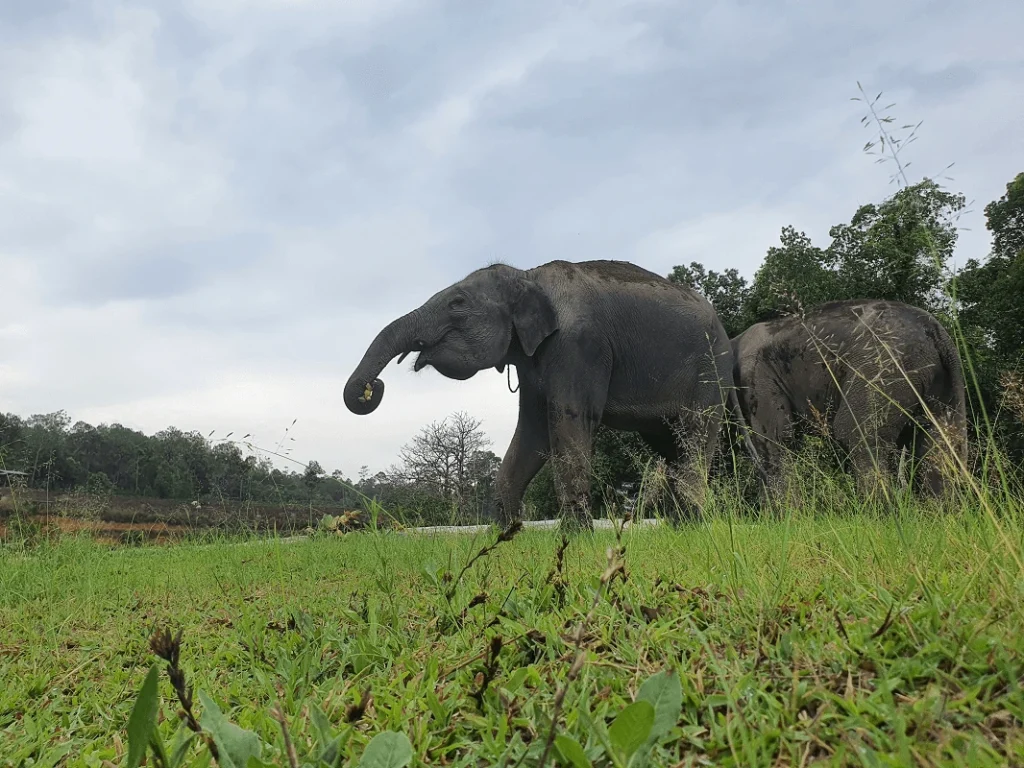
If you are planning to visit an elephant sanctuary chiang mai such as Le Cher Elephant Home, understanding and observing elephant behavior is essential. It will not only give you a deeper and more memorable experience but also help you interact with these magnificent animals safely and respectfully.
1. Why Observing Elephant Behavior Matters
Elephants are social animals with emotions, feelings, and unique personalities. Observing their behavior helps us understand their needs and moods—whether they are relaxed, excited, or feeling unsafe.
At elephant sanctuary chiang mai locations like Le Cher Elephant Home, guides or mahouts (elephant caretakers) often explain gestures and signals, enabling visitors to interpret behavior correctly and ensuring safety for both elephants and tourists.
2. Common Elephant Behaviors to Watch For
2.1 Ear Movements
- Flapping ears gently – Usually a sign of relaxation or cooling down.
- Ears spread wide and head held high – May indicate alertness or a defensive posture.
2.2 Tail Movements
- Tail swinging loosely – Indicates a calm, relaxed elephant.
- Tail stiff and motionless – Can signal alertness or stress.
2.3 Trunk Actions
- Lightly touching or picking up objects – Exploratory or playful behavior.
- Trunk raised and swaying – Often used to smell and check the surroundings.
2.4 Vocalizations
- Low rumbling sounds – Used to communicate with other elephants over long distances.
- Loud snorts or blasts – May indicate irritation, discomfort, or a warning.
2.5 Social Behavior
Elephants have a strong social structure. You might see mother elephants closely protecting their calves or herd members working together to keep each other safe. Observing these interactions reveals the deep bonds within the herd.
3. Warning Signs That an Elephant Feels Uncomfortable

At Le Cher Elephant Home, one of the well-regarded elephant sanctuary chiang mai destinations, elephants are given space and freedom. However, sometimes tourists may unknowingly get too close, making an elephant feel unsafe.
Watch for warning signs such as:
- Ears spread wide and body stiff.
- Trunk swinging aggressively.
- Stomping feet.
- Loud trumpeting or forceful blowing.
If you notice these signs, step back and give the elephant space immediately.
4. Tips for Observing and Interacting with Elephants

- Listen to the mahout’s guidance – They know the personality and mood of each elephant best.
- Keep a safe distance – Even calm elephants are large and can move quickly.
- Observe the surroundings – Noise, location, or other animals can affect an elephant’s mood.
- Avoid startling them – No loud noises or sudden movements.
- Use your eyes and heart – Observation is not just about looking, but about understanding the elephant’s feelings.
5. Experiences You’ll Gain at Elephant Sanctuary Chiang Mai
Visiting Le Cher Elephant Home, an ethical elephant sanctuary chiang mai, is not just about taking photos or feeding elephants. It’s about learning to see the world through the eyes of an animal with deep emotions and strong family bonds.
You will witness how elephants communicate, understand their herd culture, and realize that their emotional complexity is not so different from humans.
Participating in activities such as jungle walks, feeding, or assisting in elephant care allows you to see their natural behaviors and gain a deeper understanding of these gentle giants.
6. Conclusion
Observing elephant behavior is both enjoyable and valuable, especially when visiting Le Cher Elephant Home, one of the ethical elephant sanctuary chiang mai destinations.
By understanding their signals and emotions, you can interact with elephants safely, respectfully, and create meaningful memories that will last a lifetime.
Start your journey today.
Just search for “Le Cher Elephant Home” or book directly through our website → [https://lecherelephanthome.com/]
Related Topics:
Le Cher Elephant Home
83 Moo 2 T.Mae Win A.Mae Wang Chiangmai 50360
Contact Us
lecherelephanthome
@gmail.com
PHONE NUMBER
(+66)910763551
Pingback: Elephants and Nature | Ethical Elephant Sanctuary Chiang Mai
Pingback: Elderly Elephant Care – Ethical Elephant Sanctuary Chiang Mai
Pingback: Managing Stressed Elephants at Chiang Mai Ethical Sanctuary
Pingback: Explore Ethical Elephant Sanctuary Chiang Mai with Your Family